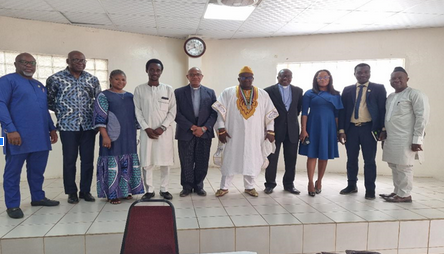As part of efforts to raise the visibility of the Gambia caucus on Freedom of Religion or Belief (FoRB), foster regular engagement between caucus members and The Gambian public, the African Centre for Parliamentary Affairs (ACEPA) and its partners and in collaboration with the National Assembly of The Gambia, organized one-day seminar on the theme: FoRB, Religious […]
Overview The Public Financial Management Reform Project (PFMRP) was part of a longer-term strategy aimed at improving budget management, financial control, and reporting. The long-term strategy (PFMRS) serves as a National strategic document to guide the development of Ghana’s PFM programmes. The goal of the strategy is to establish efficient, transparent and accountable resource mobilization, allocation, management[…]
Overview The project sought to achieve accountability and inclusion in development by bringing citizens’ voice especially voices of people in hard to reach communities, unemployed youth, youth in and out of schools, Persons with Disability (PWDs), women in the informal sector (small scale business) and Civil Society Organizations (CSOs), into the decision-making/law making process in Parliament. Ultimately,[…]
Overview This initiative was started through a partnership with the World Bank which led to the formation of the West African Association of Public Accounts Committees (WAAPAC). WAAPAC was born out of the realization that with a common platform for knowledge exchange and peer learning, Public Accounts Committees (PACs) would be able to build and enhance their[…]
Overview The project is an extension on work done by the VakaYiko Consortium (2013-2017). The DFID funded Building Capacities to Use Research Evidence (BCURE) project which was implemented by the Vaka Yiko consortium supported public institutions in low and middle-income countries to develop skills, knowledge and systems to improve the use of evidence in decision making. As[…]
Overview The project was developed under the French Embassy in Ghana’s call to strengthen the professional skills of Civil Society Organizations (CSOs) in Ghana within the context of how CSOs could contribute to good governance. ACEPA’s project in this regard, aimed to engender effective citizens’ participation and representation in governance and decision-making processes in the Northern, Upper[…]
Overview The Inclusive Legislatures for Gender-Responsive Policies (ILGRP) Project is a 4-year Government of Canada-funded program implemented in partnership with the African Centre for Parliamentary Affairs, Ghana, and the Parliamentary Centre, Canada. The project seeks to improve the effectiveness of elected officials in Ghana, Kenya, and Togo, to advance inclusive and gender-responsive laws, policies, and budgets, and[…]
Overview Despite the efforts of the Ramsar Convention to sensitize all stakeholders for the wise use of wetlands within the framework of the sustainable development, some key stakeholders seem far from the implementation of the Ramsar COP resolutions at the national level. This is the case of parliamentarians and parliamentary staff who are responsible for monitoring the[…]
Overview Accountability is the cornerstone of good governance. Unless public officials can be held to account, critical benefits such as social justice, poverty reduction, and development, generally associated with good governance will be elusive. “Social accountability” refers to the wide range of citizen and civil society organization (CSO) actions to hold the state to account, as well[…]

